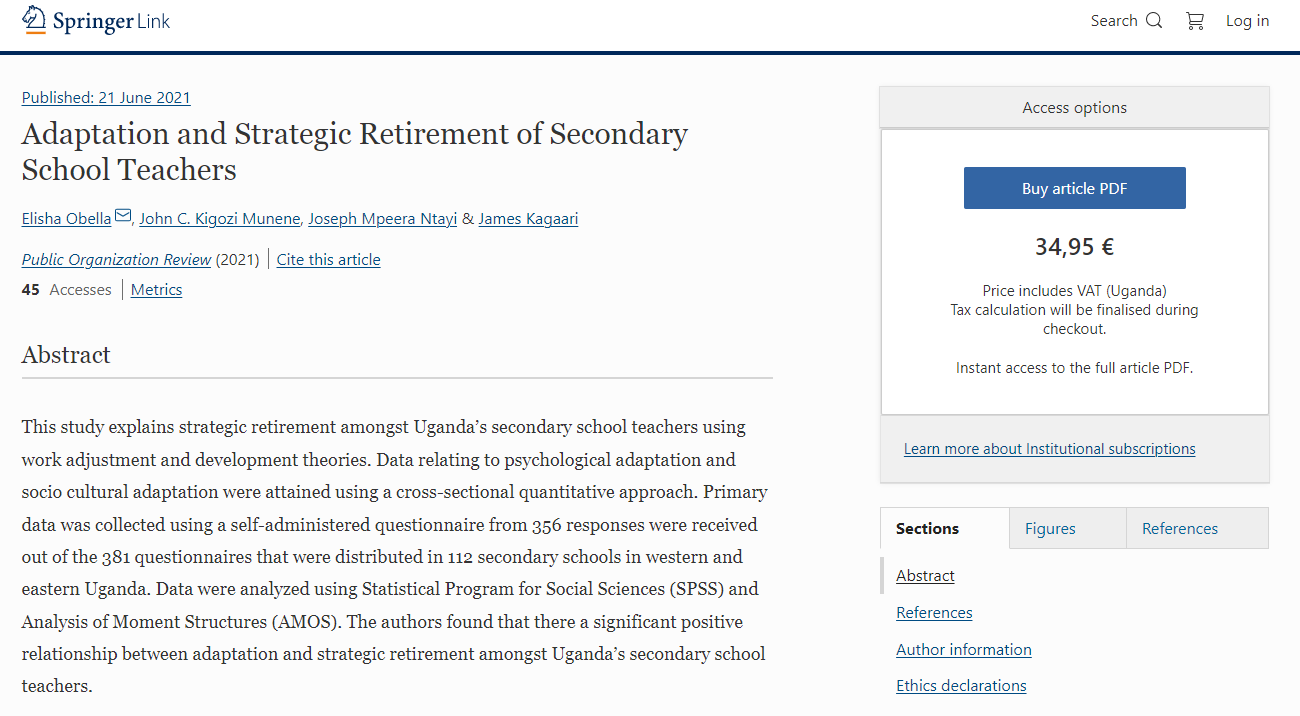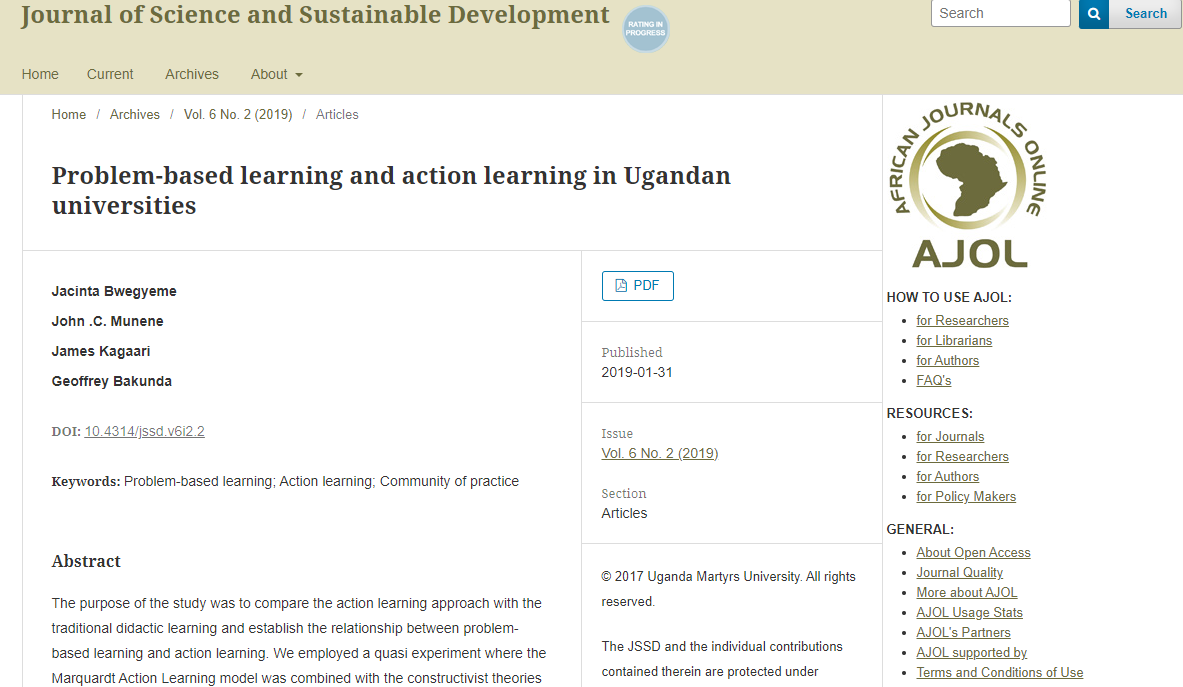Browsing by Author "Kagaari, James."
Now showing items 1-5 of 5
-
Adaptation and strategic retirement of secondary school teachers
Obella, Elisha.; Munene, Kigozi. John C.; Ntayi, Joseph Mpeera.; Kagaari, James. (Public Organization Review, 2021-06-21)This study explains strategic retirement amongst Uganda’s secondary school teachers using work adjustment and development theories. Data relating to psychological adaptation and socio cultural adaptation were attained using ... -
Institutional isomorphism, self-organisation and the adoption of management controls
Mandre, Joshua.; Ntayi, Joseph M.; Kabagambe, Levi B.; Kagaari, James. (EDITURA ASE : Accounting and Management Information Systems, 2021-02-20)Research Question: The purpose of this study is to examine whether self-organisation mediates the relationship between institutional isomorphism and the adoption of management controls. Motivation: Research on institutions ... -
Performance management practices, employee attitudes and managed performance
Kagaari, James. (International Journal of Educational Management : Emerald., 2010-08-17)Purpose – The purpose of this paper is to establish the relationship between performance management practices, employee attitudes and managed performance. Design/methodology/approach – Using a disproportionate stratified ... -
Problem-based learning and action learning in Ugandan universities
Bwegyeme, Jacinta.; Munene, John C.; Kagaari, James.; Bakunda, Geoffrey. (Journal of Science & Sustainable Development, 2019-01)The purpose of the study was to compare the action learning approach with the traditional didactic learning and establish the relationship between problem-based learning and action learning. We employed a quasi experiment ... -
Theorizing relational people management in micro enterprises: a multi-theoretical perspective
Nalweyiso, Grace; Mafabi, Samuel; Kagaari, James.; Munene, John.; Abaho, Ernest. (Journal of Work-Applied Management, 2022-05-11)This paper offers a theoretical explanation to a positive story of a micro enterprise found in Uganda, an African developing country that has successfully managed workplace relationships, its survival and good performance. ...


